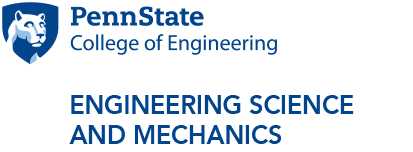Void Reduction in Composite Processing: Mechanisms, Processes and Predictive Modeling
Abstract:
During manufacturing of composite materials, the goal is to ensure that the resin occupies all the empty spaces between the fibers preventing formation of micro and macrovoids. Microvoids are caused due to presence of moisture, air or volatiles in the resin while macrovoids are dry fiber regions caused by failure of resin to infiltrate the empty spaces between the fibers. In this presentation, the mechanism of void formation in processes such as Liquid Composite Molding, Autoclave and Out of Autoclave processing, thermoplastic tape placement and adhesive bonding will be discussed.
Models to predict void formation, growth and transport will be introduced. The role of material and process parameters will be highlighted and the coupling between macro scale and microscale void formation will be addressed. Effect of individual parameters on the models will be investigated, factors that cause their variability and influence of transient variations will be described. Formulations that include coupling of meso- and microscale development in the macro-scale model will be described. Finally, some strategies to suppress or prevent voids during processing based on the understanding of resin flow and void formation, growth and transport will be presented along with examples in various composite manufacturing processes
Bio:
Suresh G. Advani is Unidel Pierre S. du Pont Chair of Engineering and Professor of Mechanical Engineering and Center for Composite Materials at the University of Delaware. He received his Ph. D. from University of Illinois at Urbana-Champaign in 1987. His research interests are in rheology, fluid mechanics and heat transfer as applied to composite processing and alternate energy sources such as fuel cells and hydrogen storage. Advani has published over 400 journal papers and delivered over 150 invited lectures.
He is the lead author of a text on Process Modeling in Composite Manufacturing Processes. Professor Advani is a Fellow of American Society of Mechanical Engineers and is the North American Editor for the journal Composites Part A: Applied Science and Manufacturing. Professor Advani recently received the Outstanding Researcher Award from American Society of Composites. He will chair the next ICCM conference to be held in Baltimore USA in August 2025.
Event Contact: Lana Fulton



